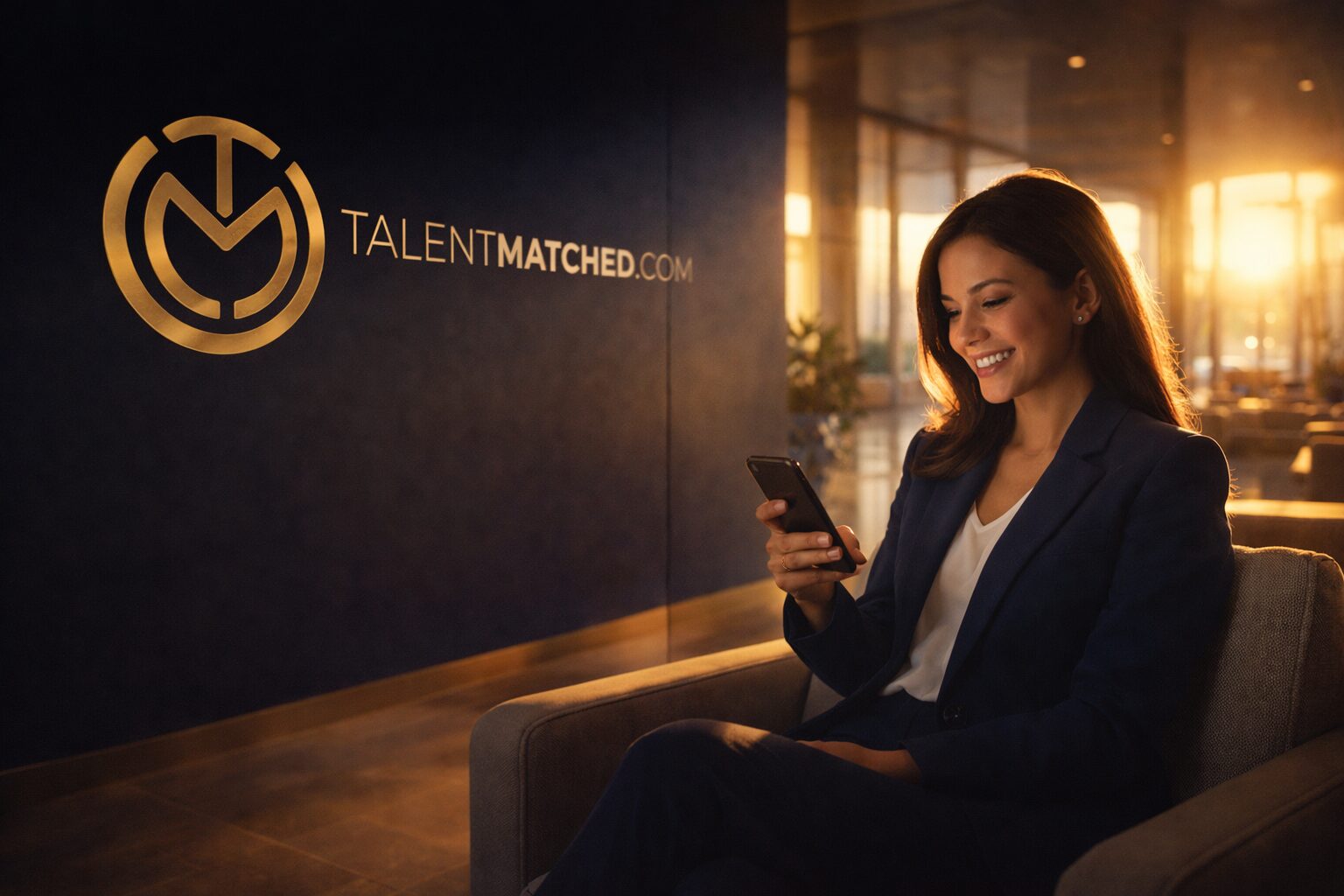The Grand Employer Branding Delusion
7 minutes
Why Your 'Authentic' Company Culture is Probably as Real as a Politician's Promise
TL;DR: While 57% of companies are throwing more money at employer branding than ever before, most are creating elaborate theatrical productions that would make Broadway jealous. It's time to stop the performance art and start building genuine connections with candidates who can smell fake authenticity from a mile away.
The Emperor's New Employer Brand
It's 2025, and somewhere in a gleaming glass tower, a marketing team is having an epiphany. "We need to be more authentic!" they declare, whilst crafting a social media campaign featuring employees who look suspiciously like they've stepped out of a stock photo catalogue.
Welcome to the wonderful world of employer branding in 2025, where authenticity is the new black, and everyone's wearing it badly.
The uncomfortable truth? 45% of students prioritise fair treatment and equal opportunities, demanding that employer brands reflect genuine organisational values rather than marketing messaging. Yet most companies are still treating employer branding like a game of dress-up, putting lipstick on workplace pigs and calling it a day.
This isn't just poor marketing—it's a grand delusion where entire industries have convinced themselves that performance equals reality.
Generation Z: The BS Detectors You Can't Fool
Here's where it gets interesting (and slightly terrifying for traditional HR teams). Gen Z will account for more than a quarter of the global workforce by 2025, and these digital natives have finely tuned rubbish detectors that would make a seasoned fraud investigator weep with envy.
These aren't your parents' job seekers who politely accepted whatever corporate narrative was served up with a side of pension contributions. 50% of Gen Z already use generative AI regularly, which means they're not just researching your company—they're cross-referencing your claims against reality faster than you can say "work-life balance."
The plot twist? They're absolutely right to be suspicious. 72% of candidates who have a negative experience will share it online or with friends and colleagues. In an age where every interaction is potentially viral content, your employer brand isn't just about attracting talent—it's about damage control.
The LinkedIn Theatre of Dreams (and Nightmares)
Let's talk about the elephant in the digital room: LinkedIn. Job posts with storytelling elements saw 67% more engagement than generic listings, which has led to an arms race of increasingly theatrical job advertisements that read like rejected scripts from The Office.
But here's the kicker—companies with formal LinkedIn policies see 43% fewer social media-related PR crises and 67% higher employee advocacy engagement. The companies winning at employer branding aren't the ones with the fanciest videos; they're the ones with clear strategies and, dare we say it, actual authentic cultures worth talking about.
The Authenticity Paradox
The irony is delicious: in our quest to appear authentic, we've created an entire industry dedicated to manufacturing authenticity. The market for LinkedIn-specific content tools grew 380% between 2022 and 2024, reaching $450 million in annual revenue.
We're literally paying people to help us seem genuine. It's like hiring a consultant to teach you how to breathe naturally.
The AI Revolution: Your New Recruitment Wingman
While everyone's arguing about authenticity, the smart money is on artificial intelligence. AI is transforming the way startups attract and engage talent. From chatbots improving candidate experiences to smarter recruitment strategies, technology is a game-changer.
But here's where it gets controversial: Only 5.4% of Google AIOs contained an exact query match in one large-scale study. This means your perfectly SEO-optimised job descriptions might be about as useful as a chocolate teapot when it comes to actual discovery.
The AI opportunity everyone's missing: Instead of fighting the machines, embrace them. Use AI to screen CVs more effectively, personalise candidate experiences, and—here's the radical bit—actually match people to roles they'll love. It's almost like using technology to solve human problems. Revolutionary, right?
The challenge? Most companies are still drowning in compliance concerns and data privacy nightmares. If you're serious about leveraging AI without the legal headaches, understanding global compliance for AI and data privacy isn't optional—it's survival.
The Candidate Experience Battlefield
Let's address the tactical elephant: candidate experience. Companies with excellent candidate experiences improve their quality of hire by 70%. Yet most recruitment processes are still designed like Soviet-era queuing systems, complete with arbitrary delays and soul-crushing bureaucracy.
The contentious reality: 95% of candidates agree that the way a potential employer treats them as a candidate reflects how they would be treated as an employee. Your recruitment process isn't just a hiring tool—it's a preview of your management style, delivered with all the subtlety of a brick through a window.
The Digital-First Delusion
48% of job seekers use social media to research a company's culture before applying, which means your carefully curated careers page is competing with Karen from Accounting's Twitter rant about the broken coffee machine.
Good luck with that.
The ROI Reality Check
Here's where the rubber meets the road (and where finance directors start paying attention): 96% of companies believe their employer brand can positively or negatively impact revenue, but only 44% monitor the impact.
We're essentially flying blind whilst claiming to be data-driven. It's like being proud of your navigational skills whilst steadfastly refusing to look at a map.
The measurement madness: Only 12% of respondents surveyed took steps to measure the impact of their employer brand and even fewer monitored or actioned feedback. We're spending money on employer branding with the same strategic rigour as a drunk person buying rounds at last orders.
The Brutal Wake-Up Call: When the Delusion Meets Reality
Here's where the grand delusion crashes into the cold, hard pavement of reality. Despite all the polished employer branding campaigns, most companies are still sending brutal, impersonal rejection emails—or worse, ghosting candidates entirely.
The devastating irony? These paper-thin corporate facades crumble the moment a candidate experiences your actual recruitment process. That carefully crafted "people-first culture" marketing suddenly rings as hollow as a politician's promise when someone receives a generic "Thanks, but no thanks" email three months after applying.
But here's the real kicker that most companies haven't twigged yet: every rejected candidate is a lost customer. For hospitality, retail, and transport organisations, you're not just annoying potential employees—you're destroying brand loyalty among hundreds of consumers for every role you fill badly.
Think about it: that candidate you ghosted? They're telling their mates about your company over drinks. That person who got a rude rejection? They're never booking your hotel, shopping in your store, or choosing your airline again. When recruiters are particularly brutal, applicants don't blame the recruitment process—they blame the company. Forever.
The multiplier effect is terrifying. One poor candidate experience doesn't just lose you one potential employee—it potentially costs you dozens of customers who get a brief, unfiltered look behind your marketing curtain.
The TalentMatched Solution: Because Reality Bites
This is precisely why efficient, respectful candidate screening isn't just nice to have—it's business-critical damage control. When you can process applications quickly and professionally, you're not just improving your employer brand; you're protecting your consumer brand from the ripple effects of recruitment negligence.
The brutal truth? Most companies need to end candidate ghosting forever with systems that guarantee 100% response rates. Because in 2025, silence isn't golden—it's reputation suicide.
[End of brutally honest commercial reality check]
The Future of Employer Branding: Beyond the Buzzwords
So what does genuinely effective employer branding look like in 2025? Here are the uncomfortable truths:
1. Purpose-Driven Everything (But Make It Real)
86% of Gen Z and millennial employees reported that having a sense of purpose is very or somewhat important to their overall job satisfaction and well-being. But here's the thing—"purpose" doesn't mean slapping a rainbow flag on your logo during Pride month and calling it diversity. It means actually creating work that matters.
2. The Employee Advocacy Revolution
Candidates trust the company's employees 3x more than the company to provide reliable information on what it's like to work there. Your employees are your best marketing tool, which is either fantastic news or absolutely terrifying, depending on how you treat them.
3. Agile Everything (Including Your Values)
An Agile EVP uses what's been built before and enhances its messaging on an ongoing basis so candidate expectations always meet reality. Static employer value propositions are about as useful as a map of Atlantis—theoretically interesting but practically useless.
The Controversial Stuff: Let's Have a Chat
Here's where we get into the really spicy territory that gets LinkedIn comment sections all heated:
The Authenticity Arms Race
Everyone's claiming to be authentic, which rather defeats the point. True authenticity can't be manufactured in a boardroom or optimised for engagement metrics. It's what happens when no one's looking, when the cameras are off, and when employees think the management can't hear them.
The Diversity Theatre Problem
More employers turn their sight to the internal talent pools (encouraging internal career mobility and re-skilling) or hire for skills (not educational background or previous experience, etc.). Real diversity isn't about pretty pictures in your annual report—it's about fundamentally changing how you hire, promote, and value people.
The Remote Work Reality
Another significant challenge is how we combine remote working with keeping employees engaged and feeling part of the team/company, its culture and values. Your ping-pong table and free snacks aren't going to cut it when half your workforce is in their pyjamas.
The Data-Driven Future
In 2025, you need to track, measure, and analyze your results to maximize the impact of your employer branding efforts. This means actually looking at numbers that matter:
- Time to hire (and why it matters more than you think)
- Quality of hire (beyond just "they turned up")
- Employee referral rates (your ultimate authenticity metric)
- Candidate satisfaction scores (yes, they should exist)
But here's the thing about building a proper AI recruitment stack—most companies are cobbling together random tools like a digital Frankenstein's monster. If you're serious about 2025, you need to understand what a proper AI recruitment ecosystem actually looks like. Spoiler alert: it's not just ChatGPT and hope.
The SEO Reality: Beyond Keywords
Here's something most employer branding "experts" won't tell you: Google can use data from thousands of searchers to understand which search results they find useful and which they don't. Your carefully crafted content means nothing if people bounce off your careers page faster than a kangaroo on Red Bull.
The search evolution: Entry-level and senior-level SEO roles actually increased in 2024. This shift reflects more automation of routine SEO tasks—and heightened demand for strategic, senior-level expertise. It's not about gaming the algorithm anymore—it's about creating genuinely useful content that people actually want to read.
The Bottom Line: Change or Become Irrelevant
We're at a crossroads in employer branding. In a digital age where every applicant has a platform, candidate experience is no longer optional. It is your employer brand.
You can either continue performing employer branding theatre for an increasingly sceptical audience, or you can do something revolutionary: actually become the kind of company people want to work for.
The choice is yours: Keep polishing the brass on the Titanic, or start building a ship that's actually seaworthy.
The Wake-Up Call
As we hurtle through 2025, remember this: From leveraging AI and storytelling to prioritizing well-being, transparency, and sustainability, companies that align with these trends will attract and retain top talent.
The companies that will thrive aren't those with the biggest marketing budgets or the fanciest LinkedIn campaigns. They're the ones that understand a simple truth: in a world obsessed with artificial authenticity, the most revolutionary thing you can do is actually be authentic.
Your move, corporate Britain. Will you join the revolution, or will you be left explaining to your board why your employer brand has all the appeal of a soggy digestive biscuit?
The candidates are watching, the employees are talking, and the competition is innovating. The question isn't whether you can afford to change your approach to employer branding.
The question is: can you afford not to?
Ready to revolutionise your recruitment process? Stop the employer branding theatre and start building genuine connections. Because in 2025, authenticity isn't just a buzzword—it's your competitive advantage.
Get your first 100 CV screens free
Ready to stop drowning in unqualified applications and start surfacing quality candidates?
✓ No credit card required
✓ Set up in under 2 minutes
✓ Integrates with your existing systems
✓ Cancel anytime




